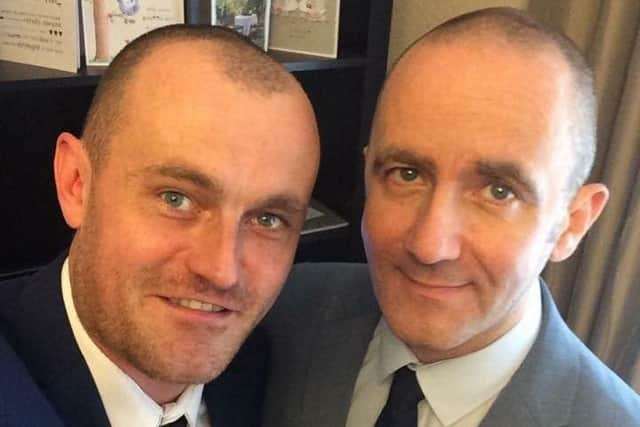Edinburgh man who waited three hours for ambulance that never came 'could have died', MSPs told
and live on Freeview channel 276
LOTHIAN Labour MSP Sarah Boyack challenged ministers in the Scottish Parliament over their ambulance response times policy following the case of a man who “could have died” while waiting for an ambulance that never arrived.
Jim Landels, 46, who has diabetes, collapsed unconscious with a severe hypoglycaemic attack, or “hypo”, in his Gorgie flat.
Advertisement
Hide AdAdvertisement
Hide AdHis husband Grant desperately called for an ambulance, and was repeatedly told one was on its way. But it never came, and three hours later Grant received a call asking if Jim had become responsive.


During questions in parliament, Ms Boyack said she believed there was “a mismatch” between the ambulance service guidelines, which rated diabetic patients as low priority, and the advice of Diabetes UK that any patient who becomes unconscious due to a hypo needed an ambulance.
She asked: “Does the Scottish Government agree with Diabetes UK on that? A constituent of mine who was unconscious waited three and a half hours, not for an ambulance but for the ambulance service to check whether he was still alive and needed support.”
Public Health Minister Joe FitzPatrick said a formal investigation was under way into the incident because a three-plus hour wait for a clinical call-back was “not acceptable”.
Advertisement
Hide AdAdvertisement
Hide AdHe said: “It is appropriate the ambulance service triages patients, to ensure the people who most need an ambulance get the service fastest. That approach is working and is saving lives. Clearly, if the triage approach is to work properly, call-backs are needed.”
He said the new response model for the ambulance service aimed to respond as quickly as possible to the sickest patients and had seen a 44 per cent increase in 30-day survival rates for cardiac arrest patients in the first year, equating to 1,182 people.
But afterwards Ms Boyack was disappointed with the minister’s “thin” response. She said: “It was the barest of answers and did not come close to addressing what appear to be real problems emerging from these new ambulance response trials. My concern is we have opened a Pandora’s box of wider issues about the remote triage system.
“And I am also worried that this goes beyond people with diabetes.
Advertisement
Hide AdAdvertisement
Hide Ad“What about other people who have potentially life-threatening conditions who don’t meet the criteria for urgent ambulance dispatch? Should they also expect a frightening, three-hour wait to get a call-back?”